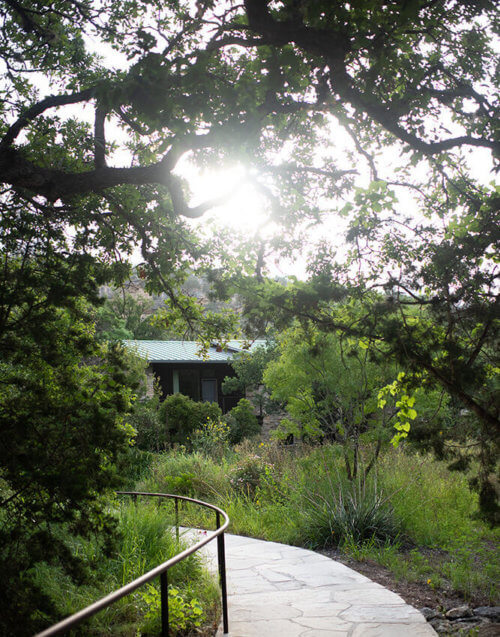
|
Dank fens of cedar; hemlock-branches gray Frederick Goddard Tuckerman (1821-1873) |
 |
If you’ve ever been deep inside a cedar brake, you’ve seen how the boughs can be so thick they block sunlight from reaching the soil. Few things grow beneath a cedar tree. In Tuckerman’s sonnet, he imagines taking refuge in the dim light of a cedar brake. There, the sunlight cannot reach him, nor it seems can the sadness of his memories, “the light of yesterday.” Like so many guests in the Frio Canyon, Tuckerman’s poem describes the peace we find in nature where “the bread of tears become the bread of life far/from the roar of day.” In the comfort of nature’s gray shadows, our human “griefs beat tranquilly.” May we find new lovely joys in the midst of any grief, renewed by our Creator’s creation.